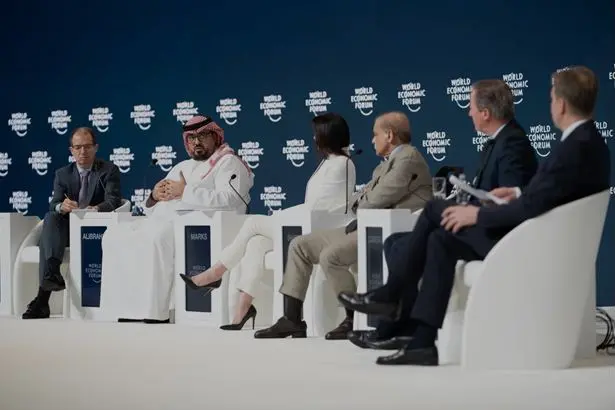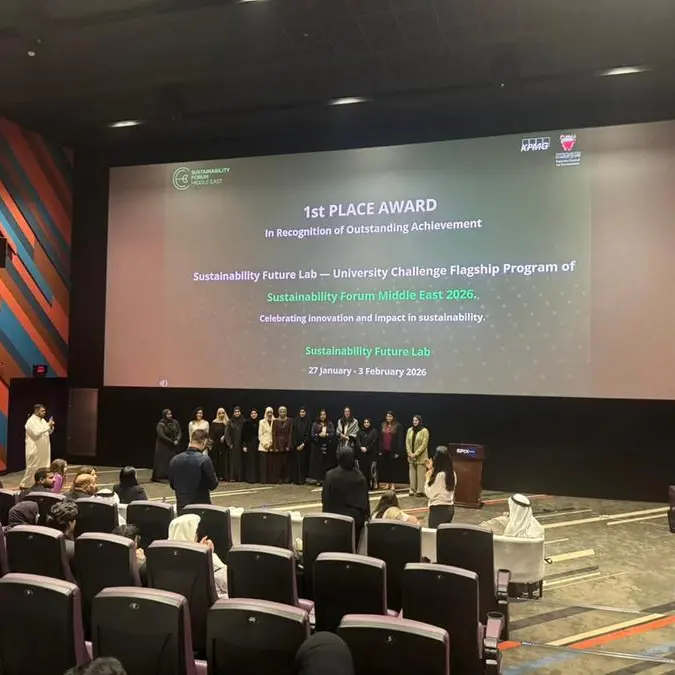PHOTO
Riyadh-Saudi Arabia – Riyadh hosted more than 1,000 global leaders for the two-day World Economic Forum (WEF) Special Meeting in Riyadh, where leading political, economics, energy and technology figures called for clear pathways to stability, prosperity and inclusive growth opportunities in the face of rising cross-border challenges.
The more than 1,000 participants in for the WEF Special Meeting on Global Collaboration, Growth and Energy for Development made it the highest-ever number of registrations for a WEF event hosted outside of its Annual Meeting venue in Davos Klosters, Switzerland.
The two-day meeting hosted in Riyadh included major international and Saudi speakers who engaged in open and candid dialogues across three major themes: revitalizing internationa cooperation, a compact for inclusive growth, and driving energy for development, with the evolving geopolitical challenges and growing global economic fragmentation setting the context.
The Special Meeting also set the stage for the launch of several initiatives in the fields of healthcare, artificial intelligence, space and sustainability. On the final day of the meeting, chief executive officer of Moderna, Stéphane Bancel, announced that the American pharmaceutical company is working to have the first product for cancer on the healthcare market, potentially as early as 2025.
On the first day of the meeting, the Saudi Ministry of Health signed a memorandum of understanding with the Bill & Melinda Gates Foundation to ensure equitable access to healthcare services for all, and to deliver more vaccines against polio, measles, and other vital health services to millions of children worldwide. It was one of several agreements signed by the Foundation with the Kingdom to improve global health systems and access.
During the final plenary session, Saudi Arabia’s Minister of Economy and Planning His Excellency Faisal Alibrahim announced that the Kingdom joined the AI Governance Alliance, and will co-launch the ‘Inclusive AI Initiative for Growth and Development’, to develop solutions for AI access and adoption.
The Saudi Space Agency also announced that it will launch the Center for Space Futures in the Kingdom later this year, in collaboration with WEF. The Center will serve as a platform for public-private dialogues and foster the growth of the global space economy.
A Saudi Arabia-led Sustainability Champions Network was also launched on the sidelines of the Special Meeting to accelerate Saudi’s private sector decarbonization efforts.
Saudi Arabia also announced an extension to its collaboration with WEF’s innovation platform UpLink, with two new initiatives that focus on developing solutions to reducing emissions through the circular carbon economy and regenerating the world’s oceans through blue economy innovations.
On the first day of the Special Meeting, His Royal Highness Prince Abdulaziz bin Salman bin Abdulaziz Al Saud, Minister of Energy of Saudi Arabia, spoke about the importance of an equitable energy transition.
Global cooperation was high on the agenda, as His Highness Prince Faisal bin Farhan Al Saud, Saudi Arabia’s Minister of Foreign Affairs, led discussions on the importance of collaboration to overcome today's most critical geopolitical challenges, including the unfolding conflicts in the Middle East, Africa and Eastern Europe.
His Excellency Adel Aljubeir, Minister of State for Foreign Affairs, addressed the same topic, discussing the need for a clear and irreversible path to enduring regional stability.
At the opening of the event, His Excellency Faisal Alibrahim, Minister of Economy and Planning, the Ministry of Economy and Planning, said the world stands at a crossroads of opportunity and responsibility, highlighting the need to co-create a global economy that works for everyone, where every nation has the chance to thrive, regardless of its wealth or status.
His words were echoed by WEF President Børge Brende who hailed the Special Meeting in Riyadh a consequential gathering that drew the attendance of key global leaders including the President of Palestine, Mahmoud Abbas, United States Secretary of State, Anthony Blinken, the United Kingdom’s Foreign Secretary David Cameron.
Leading philanthropist Bill Gates joined a session on “Bridging the Health Gap”, alongside Dr. Tedros Adhanom Ghebreyesus Director-General, World Health Organization (WHO), and Fahad bin Abdurrahman Al-Jalajel, Minister of Health, Ministry of Health of Saudi Arabia.




















